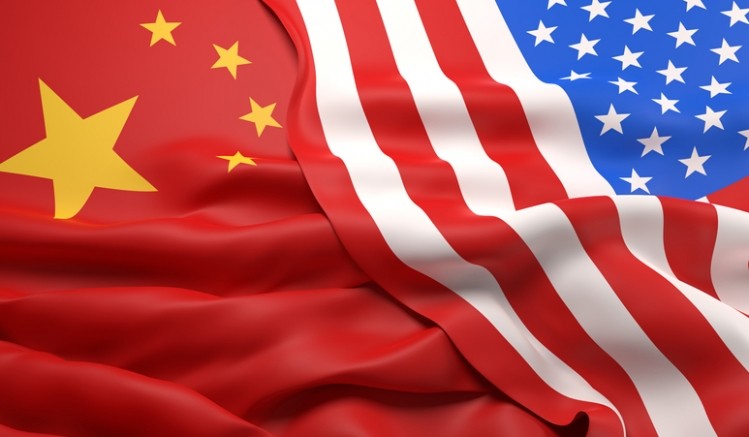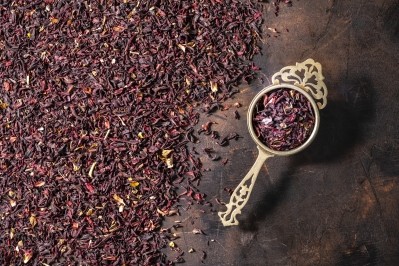Vetting suppliers becomes ever more crucial as US-China tensions rise

Tensions between the United States and mainland China have been rising for years, starting with China’s de facto annexation of waters in the South China Sea, which dates back more than a decade.
China is engaging in a policy of converting oceanic regions previously considered international waters—and which still are, in the view of the US government—into part of its exclusive economic zone by constructing artificial islands on reefs that can serve as military bases. These islands are being built in waters close to the Philippines and Vietnam. Some of these bases are now operational.
War in Ukraine; Pelosi visit
China’s position vis a vis Russia during the current war in Ukraine turned the tensions up a notch. China’s ambivalent response to the Russian invasion has been seen as adding a complicating factor the crisis. China has also reacted sharply to Western criticisms of its crackdowns in Xinjiang and Hong Kong.
The recent visit of US House of Representatives Speaker Nancy Pelosi (D-CA) to Taiwan put the cherry on top of the tension cake. Since 1949 the Chinese Communist Party has viewed Taiwan as breakaway province and has warned that official recognition of the Taiwanese government by foreign nations would be tantamount to an act of war.
China responded to Pelosi’s visit by flexing its military muscle, sending a fleet of ballistic missiles to detonate on targets surrounding the island, including at least one that reportedly overflew Taiwan directly. A massive naval training exercise took place at the same time, and China warned that more large scale exercises could be expected in the near future.
Companies scrambling to find alternatives
All of this has caused many industrial planners to consider what might have to be done if China and the US come to a formal break in diplomatic relations, or in the worst case outright war.
An article published yesterday in the Financial Times reported that multinational companies based in many countries are feverishly drawing up contingency plans. Companies engaged in China have already faced reputational risk and pressure from the US government to diversify away from doing business in the country, FT reported.
The dietary supplement sector is a tiny consideration in these international developments. Nevertheless, the industry is highly vulnerable. An exercise by trade group the United Natural Products Alliance (UNPA) several years ago revealed that as much as 80% of the ingredients used in the industry either come directly from China or flow through there.
For some ingredient categories, like vitamin C or CoQ10, there is either no practical — or literally no — alternative to working with Chinese suppliers.
Keep a cool head
The first step in managing the issue is to have a clear-headed view of just how much risk there is, stakeholders say.
“I don't anticipate this diplomatic hiccup having a negative impact on the long, close, and mutually beneficial relationships we have with our partners in China,” said Wilson Lau, president of the ingredient import Nuherbs.
"We always pay very close attention to our inventory and maintain a robust quantity in stock at all times. Supply issues during the first year of the covid pandemic when our sales increased and lockdowns slowed shipments has been an important stress test and has helped us manage and streamline our supply chain. We are currently very confident about our ability to keep products in stock," said Jeff Chilton, founder of Nammex, a wholesaler of organic medicinal mushroom ingredients.
“It is hoped that the US-China Tariff War was a low point for both sides and lessons were learned. Most tariff increases were passed through to US consumers and it is largely recognized the Chinese economy was impacted to some extent as well. Coming off the pandemic and the subsequent related and unrelated economic challenges, it is in both countries best interest to maintain economic mutual support,” said Scott Steinford, head of the consultancy TrustTransparency and founder of the CoQ10 Association.
Steinford has long experience in Chinese business culture with many M&A exchanges and leadership roles with Chinese-backed ventures such as Doctor’s Best, ZMC, Kingdomway and Zesty Paws.
“The Chinese manufacturers have proven to be good partners in general. There was a consensus of concern, and in some cases panic, when reacting to the realization of our industry dependence on China. However, for the most part, the concerns were not founded and few issues of suppliers taking advantage of the pricing opportunities occurred,” he added.
China’s manufacturing advantages hard to replace
A key element in the equation are the manufacturing advantages China enjoys, which hold just as true in the dietary supplement sector as in other industries. Chinese labor is abundant and still relatively inexpensive, Chinese companies have access to plenty of inexpensive capital and local environmental regulations have been easier to comply with than in many countries.
This led a lot of companies to begin manufacturing ingredients in China for export, or to deal with Chinese suppliers in lieu of other sources. Despite talk of moving manufacturing elsewhere, such as to Vietnam, the Philippines, India or even back to the US, that won’t be easy, quick or cheap.
“The issue here is that in China, very large fermentation and extraction facilities have been built that produce vitamin-C, CoQ10 and many botanical extracts. Also developed has been the high level of skill and experience required to produce these products to exacting specifications. To equal these facilities and experience in the US will take a lot of investment and work; this is beginning to happen, but it will take resources and time,” said Cal Bewicke, head of the botanical ingredient importer Ethical Naturals.
“Trying to compete with Chinese manufacturing has been difficult for many ingredient manufacturer competitors. Aggressive--and sometimes government supported--pricing has deterred many investors in other countries from creating quality and reliable manufacturing,” Steinford said.
"Our Chinese growers and processors are highly organized and skilled and would be difficult to replace. Nammex has been building these relationships for 40 years and no country has the successful mushroom industry that has been built in China," Chilton said.
Vetting of suppliers becoming ever more critical
Bewicke, Lau and Steinford all said that the current round of increasing diplomatic tension has not induced suppliers to raise prices over what was already seen with the market distortions wrought by the global pandemic and resulting shipping crisis. When looking forward, they said the key to dealing with an uncertain situation is to make sure your supply relationships are as solid as you can make them.
“The answer we’ve all learned over the last two-plus years is: If you want a reliable supply of ingredients that meet your specifications, build inventory. Beyond that work closely with reliable suppliers, give them projections for your requirements for the next six-to twelve-month periods. Planning and co-operation up and down the supply chain are the best security in an insecure world,” Bewicke said.
“Any type of supply disruption will provide impetus to create fraudulent, adulterated or sup-par ingredients at breakneck speed using minimal capital. It is important to note that no matter the reason for supplier changes, quality and supplier verification must be maintained at the highest level,” Steinford said.
"
















